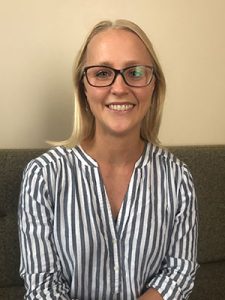Testing for Autism Spectrum Disorder (ASD)
Josefine Eriksson is the Director of Psychological Services at Matone Counseling and Testing. She provides counseling and psychological evaluations to children, teens, and adults.
According to the Centers for Disease Control and Prevention (CDC), about 1 in 54 children has been identified with an autism spectrum disorder (ASD) while 1 in 6 children ages 3-17 has been diagnosed with a developmental disability which may include autism, ADHD, intellectual disability, learning disability and more. According to research, rates of neurodevelopmental disorders have increased over the past decade.
Autism Spectrum Disorder is one type of neurodevelopmental disorder – disorders of which are described by impairments in personal, social, occupational, or academic functioning. According to the DSM-5, ASD is defined by persistent deficits in social communication and interactions. Weaknesses are observed within reciprocal interactions, nonverbal communicative behaviors, and overall challenges developing, maintaining, and understanding relationships. Individuals with an autism spectrum disorder also exhibit restricted, repetitive patterns of behavior, interests, or activities. Interests may be highly restricted or fixated, an inflexible reliance on routines may be exhibited, stereotyped or repetitive movements or speech may be observed, and/or hyper or hypoactivity to sensory inputs may be experienced.
Of note, symptoms of ASD can impact individuals to varying degrees, severity of which is based on the impact of social, occupational, and other important areas of current functioning. Therefore, every individual with ASD is unique, presenting with their own unique strengths and weaknesses. While young children may often benefit from services such as speech and language therapy, occupational therapy, or behavioral support, many adolescents and adults living with ASD may require different supports. Adults may report “masking” symptoms, or studying social cues in order to understand how to fit in. They may “push through” sensory discomfort or put in a significant amount of effort compared to neurotypical individuals. Because symptoms can vary, treatment should be tailored to one’s unique needs.
It is important to highlight that Autism has a history of being viewed as a “disorder” or something that needs to be “fixed.” However, it is important to consider the unique strengths that individuals with ASD present with and that differences within neurodiversity bring a different way of processing information and interpreting the world around them, which do not need to be viewed as negative. Instead of labeling this type of thinking as “wrong” we should expand our way of thinking, honor each individuals’ strengths, and provide support in areas that are impacting daily functioning. Therefore, treatment may include accommodations and specific services, however, therapy may also focus on helping individuals recognize their strengths, rebuild confidence, and reflect on how society has arbitrarily defined what is referred to as “normal” or “typical” functioning. This is commonly referred to as a neuroaffirmative approach to treatment and intervention.
If you have questions for yourself or a loved one regarding neurodevelopmental differences, Matone Counseling and Testing offers psychological evaluations to provide diagnostic clarity and help in guiding treatment recommendations. Testing is performed at both our Asheville office and at our Cotswold location in Charlotte. Therapy may also be available depending on the unique needs of you or your loved one.
The testing process typically consists of three sessions:
The first is an intake appointment which is focused on gathering background information, including developmental, medical, social, academic history, and more. If you are a parent seeking an evaluation for your child, much of the time will be spent talking to the parent or caregiver. This information will help guide the testing process. This is also an opportunity to ask any questions you may have regarding the assessment process.
The second appointment is an in-person appointment that lasts approximately three hours. This may be slightly less depending on age. During this appointment, you or your loved one will meet with the psychologist to complete different tasks and assessments. A cognitive assessment is completed to gain a better understanding of intellectual abilities and how one processes information, particularly with regard to verbal and nonverbal reasoning skills. Social assessments and clinical observation will gather more information regarding how an individual engages in social communication, approaches social interactions, and restricted and repetitive behaviors. For children, parents will complete rating scales which help provide additional information regarding their child’s social skills, sensory processing, and adaptive skills. If available, school input or teacher rating scales can be included. If you are an adult seeking an autism evaluation, with your consent, family members, partners, or close friends can provide information to help better understand the developmental history and/or strengths and weaknesses.
The final appointment is a feedback session where results are reviewed and recommendations are provided. You will be provided with a copy of the report which includes background information, testing results, diagnostic impressions, and recommendations. You may choose to share this report with other medical providers or with health insurance in order to obtain additional services if warranted.
Most insurance plans include coverage for psychological evaluations. We will check your benefits and gather any necessary authorizations prior to testing. Our goal is to help you better understand your own unique strengths and experiences, what aspects of life feel more challenging, and the supports that will help you or your loved one reach their full potential and feel successful and confident.

By Josefine Eriksson, PsyD
Josefine Eriksson is the Director of Psychological Services at Matone Counseling and Testing. She provides counseling and psychological evaluations to children, teens, and adults.




